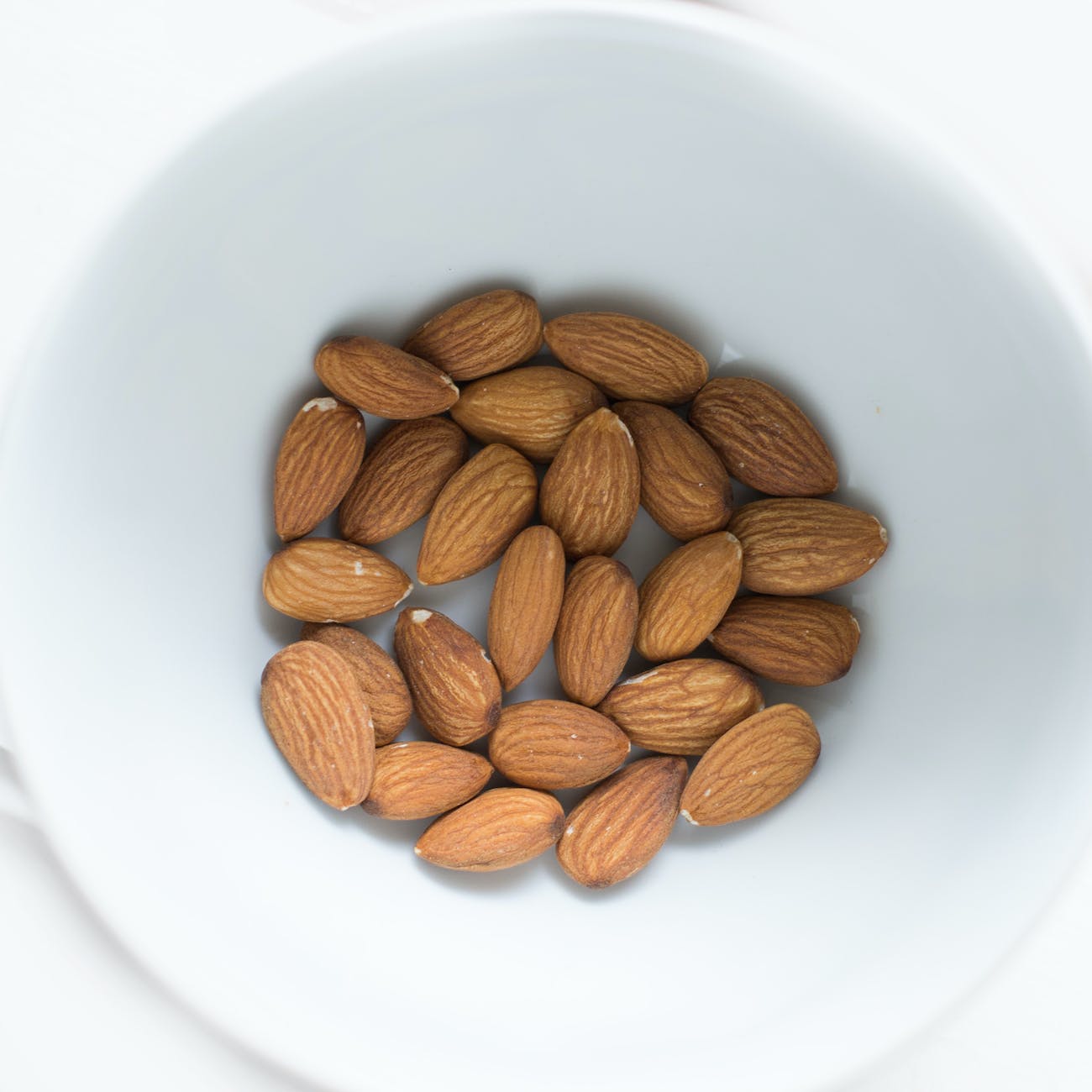
Ginger, a fiery root with rough beige skin and hard, juicy, pale yellow flesh, can be likened to a burning torch that wards off disease. Used for centuries in different parts of the world, not just for its distinctive flavor, but also for its long list of health benefits. Let’s embark on a journey to uncover the health benefits of this wonder spice.
Ginger and Its Anti-Inflammatory Properties
The Power of Gingerol
Gingerol, the main bioactive compound in ginger, is a powerhouse of medicinal properties. It has potent anti-inflammatory and antioxidant effects that can help combat disease and inflammation. This compound is responsible for the distinctive fragrance and flavor of ginger, and it’s also the reason why ginger is considered a “superfood” for its numerous health benefits.
Fighting Chronic Inflammation
Chronic inflammation is a silent killer that can lead to various health problems, including heart disease, cancer, and Alzheimer’s. Ginger, with its anti-inflammatory properties, can help reduce inflammation and even relieve pain associated with conditions like osteoarthritis. Regular consumption of ginger can help alleviate the symptoms of chronic inflammation and improve your overall health.
Turmeric and Ginger: A Powerful Combo
When combined with turmeric, another potent anti-inflammatory spice, the benefits of ginger are amplified. This dynamic duo can work wonders for your health, from reducing inflammation to preventing cancer. Turmeric and ginger together can form a powerful line of defense against chronic diseases.
The Benefits of Ginger Tea
A Soothing Beverage
Ginger tea is more than just a warm, soothing beverage. It’s a concoction that has numerous health benefits. From aiding digestion to reducing inflammation and managing glucose levels, ginger tea is a potent health drink that you’ll want to include in your daily routine.
Weight Loss Ally
Did you know that ginger tea can aid in weight loss? It can boost your metabolism and help you feel fuller, which can reduce your overall calorie intake. Drinking ginger tea regularly can help you shed those extra pounds and maintain a healthy weight.
Morning Ritual
Starting your day with a cup of ginger tea on an empty stomach can do wonders for your health. It can kickstart your metabolism, aid in digestion, and set a healthy tone for the day. Plus, it’s a great way to hydrate your body first thing in the morning.
Ginger and Sexual Health
A Natural Aphrodisiac
Ginger has been used as a natural aphrodisiac for centuries. It can enhance sexual health and fertility in both men and women. Regular consumption of ginger can improve blood circulation, increase libido, and improve sexual performance.
Spicing Up Your Love Life
Including ginger in your diet can spice up your love life. It’s believed to increase blood flow and body temperature, which can enhance sexual desire. Whether it’s in the form of food, tea, or supplements, ginger can add a little extra spice to your intimate moments.
Ginger for Weight Loss
Boosting Your Metabolism
Ginger can play a significant role in weight loss by boosting your metabolism. A faster metabolism burns more calories, helping you lose weight. Plus, ginger can improve digestion and reduce feelings of hunger, which can aid in weight loss.
Feeling Full
Ginger can also help you feel fuller, which in turn can reduce your overall calorie intake. This can be particularly helpful if you’re trying to lose weight. So, the next time you feel a snack craving coming on, try reaching for a piece of ginger instead.
Supplementing Your Diet
If you’re not a fan of the taste of ginger, don’t worry! You can still reap the benefits by taking a ginger supplement. Just make sure to choose the best ginger supplement for weight loss. Remember, supplements should not replace a balanced diet but should be used as a part of a healthy lifestyle.
You can also read: 5 Benefits of Ginger for Weight Loss
Ginger and Immunity
Warding Off Germs
Certain chemical compounds in fresh ginger help your body ward off germs. They’re especially good at halting growth of bacteria like E.coli and shigella, and they may also keep viruses like RSV at bay. Regular consumption of ginger can help strengthen your immune system and keep you healthy.
Ginger Drinks for Health
Ginger drinks, like ginger water and ginger tea, are not only delicious but also packed with health benefits. They can boost your immune system, improve digestion, and keep you hydrated. Plus, they’re a great way to incorporate ginger into your diet.
Ginger: An Immunity Booster
Regular consumption of ginger can boost your immune system, helping you fight off common illnesses and infections. Whether it’s cold, flu, or a minor infection, ginger can help speed up your recovery and get you back on your feet.
Ginger and Blood Pressure
Natural Hypertensive
Ginger is a natural remedy that can help lower high blood pressure by acting as a vasodilator—it expands your blood vessels. This is particularly beneficial for people suffering from hypertension. Incorporating ginger into your diet can help manage your blood pressure levels and reduce the risk of heart-related diseases.
Ginger Tea for Blood Pressure
Drinking ginger tea can also help in controlling blood pressure. The compounds in ginger can help improve blood circulation and relax the muscles surrounding blood vessels, thereby reducing blood pressure.
Ginger and Gut Health
Aiding Digestion
Ginger has been used for centuries to aid digestion. It can help improve absorption and assimilation of essential nutrients and aid in digestion. It can also help with various digestive problems like bloating, constipation, and indigestion.
Ginger Water in Empty Stomach
Starting your day with ginger water on an empty stomach can do wonders for your gut health. It can kickstart your metabolism, aid in digestion, and set a healthy tone for the day. Plus, it’s a great way to hydrate your body first thing in the morning.
The Medicinal Uses of Ginger
A Natural Medicine
Ginger has been used as a natural medicine for centuries. From treating digestive issues to relieving pain and inflammation, ginger has a wide range of medicinal uses. It’s no wonder that it’s considered a staple in many natural remedies.
Uses of Ginger
Ginger can be used in various forms—fresh, dried, powdered, or as an oil or juice. It’s a common ingredient in recipes and can also be used for its medicinal properties. Whether it’s treating nausea or reducing muscle pain, ginger has a use for it all.
Ginger and Skin Health
Glowing Skin
Ginger is packed with more than 40 antioxidants that are said to fight the telltale signs of aging. Not only can ginger help your skin maintain its youthful glow, but it can also help improve skin’s elasticity, tone, and clarity.
Ginger Benefits for Skin
Ginger can help reduce inflammation, lighten age spots, and improve circulation—giving you healthier, more radiant skin. Whether it’s in the form of a ginger mask, scrub, or in your diet, ginger can have significant benefits for your skin.
Ginger and Digestive Health
Aiding Digestion
Ginger has been used for centuries to aid digestion. It can help improve absorption and assimilation of essential nutrients and aid in digestion. It can also help with various digestive problems like bloating, constipation, and indigestion.
Chewing Raw Ginger
Chewing raw ginger can stimulate digestion by speeding up the movement of food from the stomach to the small intestine. It can also help with various digestive problems like bloating, constipation, and indigestion.
Ginger and Mental Health
Boosting Brain Function
Ginger is rich in antioxidants and bioactive compounds that can inhibit inflammatory responses in the brain. Regular consumption of ginger can enhance brain function, improve memory and cognitive processing, and may even help prevent neurodegenerative diseases.
Ginger for Stress Relief
Ginger can also help reduce stress and anxiety. Its potent antioxidant properties can help reduce oxidative stress, which is linked to anxiety and depression. A cup of ginger tea can be a great way to unwind after a long day.
You might want to read: 5 Benefits of Ginger for Migraine and Headaches
Ginger and Respiratory Health
Clearing the Airways
Ginger can help clear the airways and reduce inflammation in the respiratory system. It can be particularly beneficial for people suffering from respiratory conditions like asthma or bronchitis. Whether it’s in the form of ginger tea or a ginger-infused drink, it can help soothe the throat and reduce coughing.
Ginger for Coughs and Colds
Ginger is a popular natural remedy for colds and flu. It can help boost the immune system, fight off infections, and soothe a sore throat. Plus, it’s a natural anti-inflammatory that can help reduce the swelling and inflammation associated with a cold or flu.
Also Read: 4 Benefits of Ginger for Healthy Lungs and Ginger for Sore Throat
Ginger and Diabetes
Regulating Blood Sugar
Ginger can help regulate blood sugar levels and improve insulin resistance, making it a great dietary addition for people with diabetes. Regular consumption of ginger can help manage the symptoms of diabetes and improve overall health.
Ginger for Heart Health
Ginger can also help reduce the risk of heart disease by lowering cholesterol levels, reducing blood clotting, and helping to maintain healthy blood sugar levels. Incorporating ginger into your diet can help improve heart health and reduce the risk of heart-related diseases.
How to Make Ginger Tea
Ingredients:
- Fresh ginger root
- Water
- Honey
- Lemon
- Milk (optional)
Instructions:
- Prepare the Ginger: Start by peeling the ginger. The easiest way to do this is by using the side of a spoon. This method ensures you don’t lose a lot of the root while peeling.
- Slice the Ginger: After peeling, slice the ginger into thin pieces. The more surface area of the ginger exposed, the stronger the tea will be.
- Boil the Ginger: Place the sliced ginger in a saucepan and add water. Bring the water to a boil and then reduce the heat to let it simmer. Let the ginger steep in the water for about 10-20 minutes, depending on how strong you want your tea to be.
- Strain the Tea: After the ginger has steeped, strain the tea into a cup to remove the ginger pieces.
- Add Honey: Add honey to your tea for a touch of sweetness. The amount of honey you add will depend on your personal preference. Start with a teaspoon and add more if needed.
- Add Lemon: Squeeze in some fresh lemon juice. Lemon adds a refreshing tang to the tea and enhances its health benefits.
- Add Milk (Optional): If you prefer a creamier tea, you can add a splash of milk. This is optional and can be skipped if you prefer a clear tea.
- Serve: Your ginger tea is ready to serve! Enjoy it hot for a soothing drink.
Variations of Ginger Tea
1. Ginger Lemon Tea: Follow the same steps as above but add more lemon juice for a stronger lemon flavor. This version is particularly refreshing and great for soothing a sore throat.
2. Ginger Honey Tea: If you prefer a sweeter tea, add more honey. Honey not only sweetens the tea but also brings its own health benefits, making this version a great choice when you’re feeling under the weather.
3. Creamy Ginger Tea: For a creamy version, add more milk. This version is soothing and comforting, perfect for a cozy evening at home.
4. Spiced Ginger Tea: You can also add other spices like turmeric or cinnamon to your ginger tea for an added flavor and health boost.
Remember, the key to a great ginger tea is to adjust the ingredients according to your taste. Start with the basic recipe and then experiment with different variations until you find your perfect cup of tea. Enjoy!
Frequently Asked Questions
1. What are the health benefits of ginger?
Ginger is a powerhouse of health benefits. It’s known for its anti-inflammatory and antioxidant properties, which can help fight diseases and reduce inflammation. It can aid in digestion, reduce nausea, and help fight the flu and common cold. Moreover, ginger can help lower blood sugar levels, reduce menstrual pain, and lower cholesterol levels.
2. Can ginger help in weight loss?
Yes, ginger can play a significant role in weight loss. It can boost your metabolism, which helps your body burn more calories. It also helps you feel fuller, which can reduce your overall calorie intake. Drinking ginger tea or water can be a great way to incorporate ginger into your weight loss diet.
3. Is ginger good for the skin?
Absolutely! Ginger is packed with more than 40 antioxidants that are great for your skin. It can help fight free radicals, even out skin tone, improve elasticity, and reduce inflammation. Regular consumption of ginger, whether in your diet or as a part of your skincare routine, can give you healthier, more radiant skin.
4. Can ginger boost the immune system?
Yes, ginger can boost your immune system. It can help your body ward off germs and is particularly good at halting the growth of bacteria. Regular consumption of ginger can help strengthen your immune system and keep you healthy.
5. How does ginger benefit men’s health?
Ginger has several benefits for men’s health. It can enhance sexual health and fertility, improve prostate health, and even aid in muscle recovery. It’s also great for heart health, as it can help lower cholesterol levels and reduce the risk of heart disease.
6. How does ginger benefit women’s health?
Ginger is beneficial for women’s health in several ways. It can help alleviate menstrual pain, reduce inflammation, and improve digestion. It’s also been used to help manage symptoms of polycystic ovary syndrome (PCOS). Plus, it’s great for skin health and can give you a radiant glow.
Suggested Read: 4 Health Benefits of Ginger for PCOS
7. Can ginger help with digestion?
Yes, ginger is known to aid digestion. It can help improve absorption and assimilation of essential nutrients in the body. It can also help with various digestive problems like bloating, constipation, and indigestion.
8. Can ginger lower blood pressure?
Ginger can indeed help lower blood pressure. It acts as a vasodilator, which means it can expand your blood vessels and improve blood circulation. This can help lower your blood pressure and reduce the risk of heart disease.
9. Can ginger improve mental health?
Ginger has been found to have potential benefits for mental health. It contains compounds that may boost brain function and protect against age-related damage to the brain. It’s also been found to reduce symptoms of anxiety and depression.
10. Can ginger help manage diabetes?
Ginger can help manage diabetes by improving insulin sensitivity and lowering blood sugar levels. Regular consumption of ginger can help manage the symptoms of diabetes and improve overall health.
11. Can ginger help with respiratory health?
Yes, ginger can help with respiratory health. It can help clear the airways, reduce inflammation in the respiratory system, and can be particularly beneficial for people suffering from respiratory conditions like asthma or bronchitis.
12. Can ginger help with heart health?
Ginger can help improve heart health in several ways. It can help lower cholesterol levels, reduce blood clotting, and help maintain healthy blood sugar levels. Incorporating ginger into your diet can help improve heart health and reduce the risk of heart-related diseases.
13. Can ginger help with stress relief?
Yes, ginger can help reduce stress and anxiety. Its potent antioxidant properties can help reduce oxidative stress, which is linked to anxiety and depression. A cup of ginger tea can be a great way to unwind after a long day.
14. Can ginger improve gut health?
Absolutely! Ginger can aid in digestion and help with various digestive problems like bloating, constipation, and indigestion. Starting your day with ginger water on an empty stomach can do wonders for your gut health.
15. Can ginger boost brain function?
Yes, ginger can enhance brain function and improve cognitive processing. It’s rich in antioxidants and bioactive compounds that can inhibit inflammatory responses in the brain.
16. Can ginger help with colds and flu?
Ginger is a popular natural remedy for colds and flu. It can help boost the immune system, fight off infections, and soothe a sore throat. Plus, it’s a natural anti-inflammatory that can help reduce the swelling and inflammation associated with a cold or flu.
17. Can ginger help with muscle recovery?
Yes, ginger can help with muscle recovery. It’s anti-inflammatory properties can help reduce muscle pain and soreness. Plus, it can help improve circulation, which can aid in muscle recovery.
18. Can ginger help with menstrual pain?
Ginger has been used to help alleviate menstrual pain. It’s anti-inflammatory properties can help reduce the inflammation and pain associated with menstruation.
19. Can ginger help with nausea?
Yes, ginger is known to help with nausea. It’s often used to help treat morning sickness during pregnancy, motion sickness, and even chemotherapy-induced nausea.
20. Can ginger help with inflammation?
Yes, ginger is known for its potent anti-inflammatory properties. It can help reduce inflammation in the body, which can help with a variety of health issues, from arthritis to heart disease.
Conclusion
From boosting digestion to enhancing sexual health, reducing inflammation, and even aiding in weight loss, ginger is a versatile spice with a plethora of health benefits. Incorporating ginger into your diet can lead to significant health improvements.
Remember, while ginger is a powerful natural remedy, it should not replace professional medical advice. Always consult with a healthcare professional before starting any new health regimen.
Blog Tags
Ginger, Health Benefits, Natural Remedies, Anti-inflammatory, Digestive Health, Sexual Health, Weight Loss, Immunity Booster, Blood Pressure, Gut Health, Skin Health, Mental Health, Respiratory Health, Diabetes, Heart Health.
Some of the best way to use ginger daily in your diet as add ginger pickle in your meal, ginger honey lemon tea, ginger chutney or drink some fresh ginger ale, Make fresh ginger lemonade, Add It to a Smoothie etc.
Masala monk have a great range of ginger products to help you include the same in your daily diet.
Sweet and Spicy Ginger Pickle-Homemade
Homemade Authentic Gingerale
Himalayan Sweet Ginger Chutney – 200 gms
Adrak ka Achar
Mukhwas Mania












